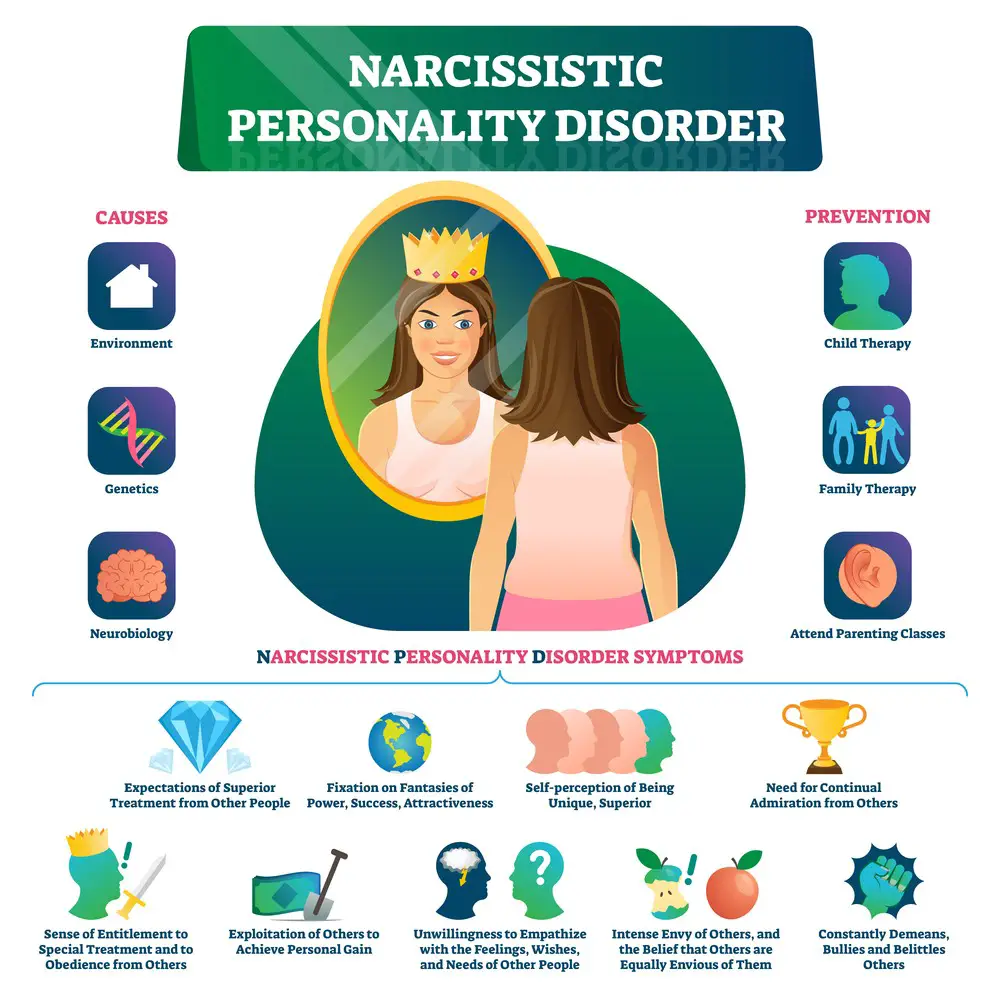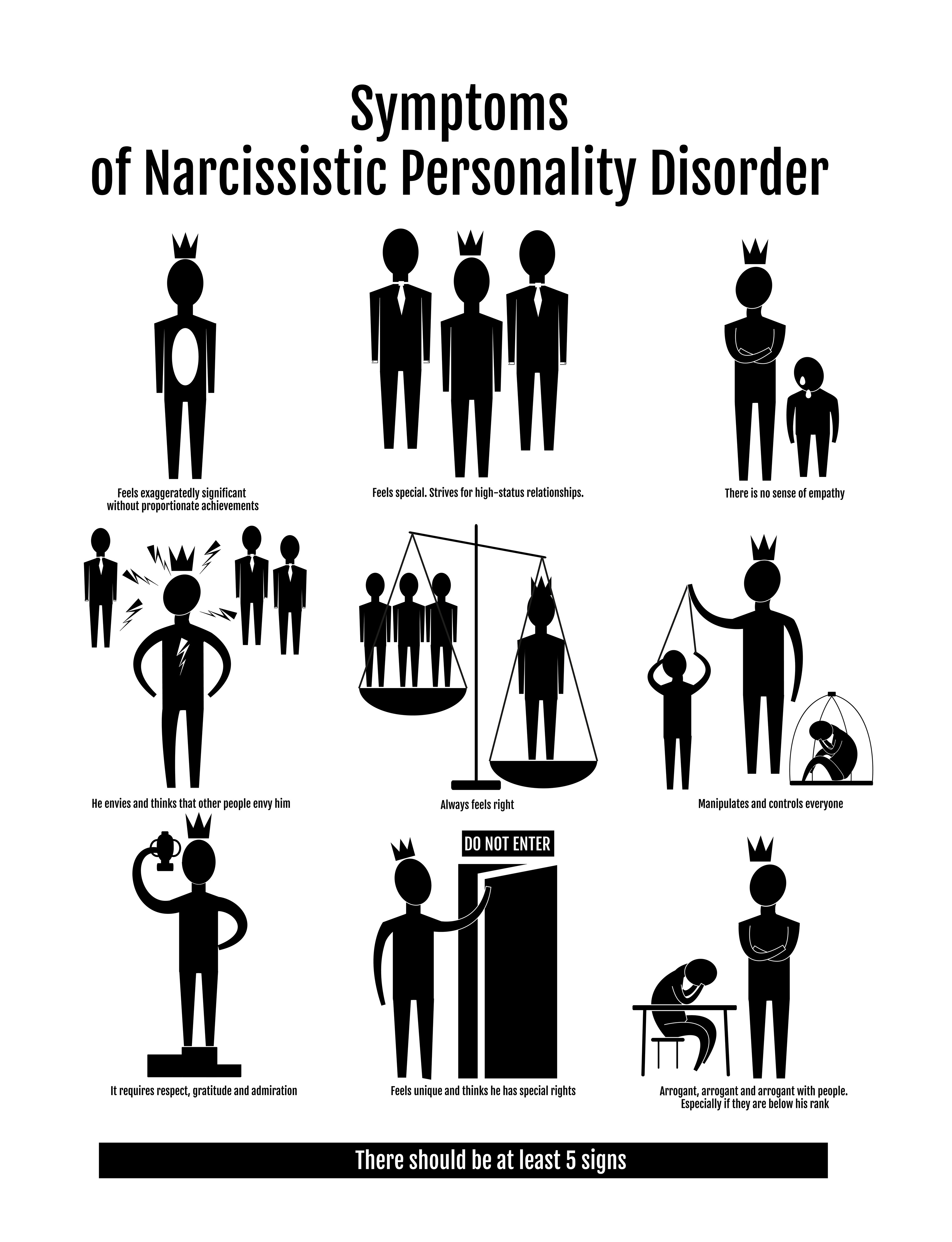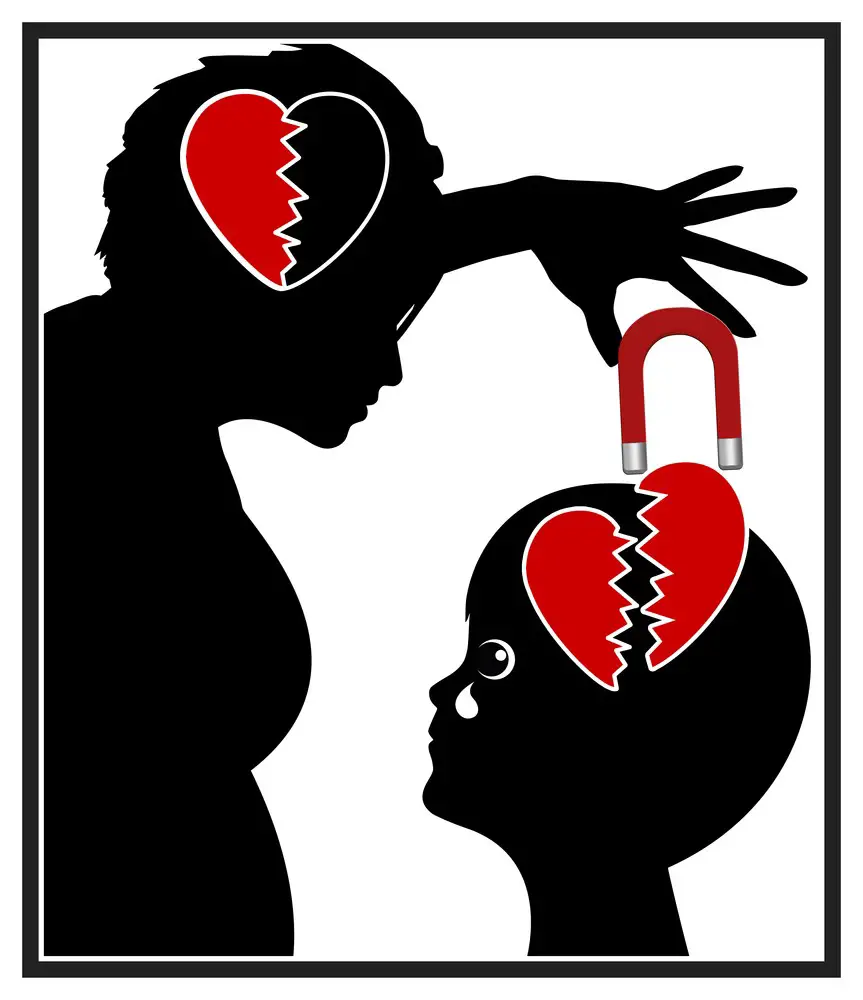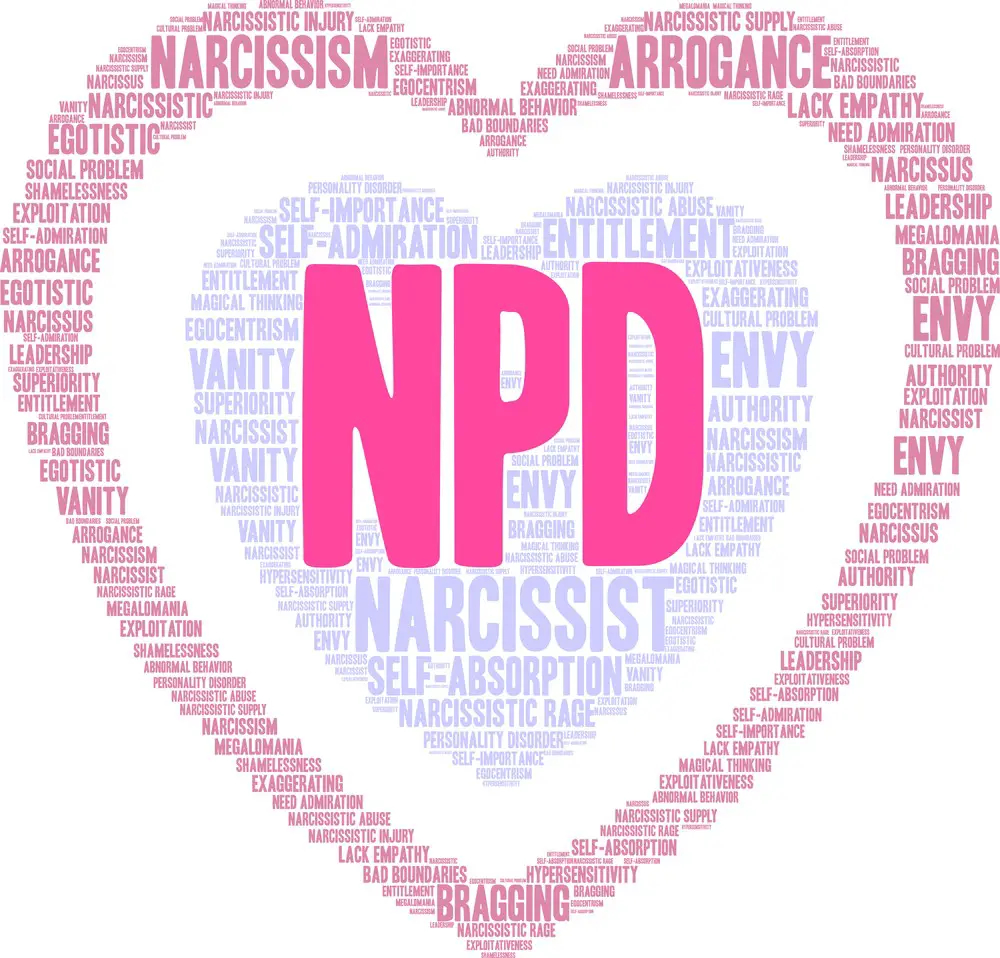As a BetterHelp affiliate, we receive compensation from BetterHelp if you purchase products or services through the links provided
Narcissistic moms prioritize their own desires before giving their children adequate nurturing or paying them enough attention. They use their children as a means to meet their own means. Some traits they display include manipulation of their children, extreme sensitivity to criticism, and the need to play the victim constantly.
If you have a terrible mother/child relationship and think she could have a narcissistic personality disorder, take the “Is My Mom a Narcissist Quiz.” The quiz questions may be hard to answer since you may have learned to suppress your feelings to avoid constant conflict over issues with your mom.
However, before taking the “Is My Mom a Narcissist Quiz,” it’s a good idea to delve further into narcissism, its traits, and how it affects children.
 What is a Narcissistic Personality?
What is a Narcissistic Personality?
We all know the story of Narcissus, the handsome young man who rejected the advances of everyone. The gods punished him by making him fall in love with his reflection, which could not love him back.
Therefore, people with a narcissistic personality are self-centered and only preoccupied with their own needs. As a trait, narcissism is not necessarily destructive but becomes problematic when it harms the person or those around them.
We read in FridayTrivia that researchers have found two broad categories of narcissism: grandiose and vulnerable. People with the former tend to exaggerate their importance and show aggression. With the latter, they display shifting feelings of inferiority or superiority to others and often get offended if they don’t receive special treatment.
Traits of a Narcissist Mother
The traits of a narcissistic mother are often in line with those of a narcissist personality disorder:
- Has an inflated sense of magnificence and entitlement
- Is arrogant
- Takes advantage of others for personal gain
- Has fantasies of achievement, power, or wealth
- Overly exaggerates accomplishments, talents, or status
- Has a disproportionate need for admiration
- Believes that others are envious of her
- Has a constant jealousy of others
- Lacks empathy
Mothers with these traits see their children as an extension of themselves, only investing in their child’s well-being when it can enhance their own. The child’s needs often go unmet because maternal narcissism disrupts the formation of a bond between the mother and child.
Read this article from Medium about the signs to look for in a narcissistic mother.
 Effects of Having a Narcissist Mom on Children
Effects of Having a Narcissist Mom on Children
People form their first relationships with parents and siblings. The lessons learned by the children of narcissistic mothers can create significant issues in forming healthy relationships later. The reason is that they struggle to develop a healthy sense of self, which they must overcome as they mature into adults.
These are some of the effects of growing up with a narcissistic mom:
- Low emotional intelligence – Narcissistic mothers often dictate how you should feel about certain things. They may try to convince you that your feelings are overdramatic.
- Self-blaming – Since narcissistic moms never accept responsibility for their failures, they blame you. Hence, you may believe anything wrong is your fault, even if it isn’t.
- Inability to create and maintain boundaries – Narcissistic mothers see their children as an extension of themselves and don’t respect any boundaries, hampering the development of healthy emotional boundaries.
- Inability to form a secure attachment – The lack of stability and consistency created by the mother’s unstable affection creates a problem for children because they cannot develop a confident love for their mom.
- Becoming highly attuned to the emotions of others – Growing up in a home with a narcissistic mother means you have learned to appease her needs, resulting in high emotional awareness. Most likely, you have learned how to avoid situations where you can provoke anger in others.
- Feeling the need to cater to others’ needs – You have learned to prioritize your mom’s needs since she has always placed them above your own, meaning you always cater to those of others first.

Is My Mom a Narcissist Quiz
It’s often difficult for a child of a narcissistic mom to take an “Is my mom a narcissist quiz,” especially if you have adapted to her behavior and normalized it or have conflicting feelings. Answer the questions below as honestly as possible:
- Does your mom often dominate conversations and make all issues about herself?
- Yes
- No
- Does your mom repeatedly criticize and demean you or others?
- Yes
- No
- Does your mom have a problem acknowledging your emotions and needs?
- Yes
- No
- Does your mom seem to lack empathy for other people and their problems?
- Yes
- No
- Does your mom have a sense of entitlement, always expecting special treatment?
- Yes
- No
- Does your mom become angry or defensive when her behavior is questioned or criticized?
- Yes
- No
- Does your mom play the victim, blaming you for her problems?
- Yes
- No
- Does your mom “tell lies” about you to others?
- Yes
- No
- Does your mom constantly compete with you, treating you as her enemy?
- Yes
- No
- Does your mom only treat you nicely when others are around?
- Yes
- No
 Understanding the Answers to the Quiz
Understanding the Answers to the Quiz
If you have answered yes to at least three of the “Is My Mom a Narcissist Quiz” questions, then your mother displays narcissistic tendencies.
Whether she has narcissistic personality disorder (NPD) depends on the severity of her traits. A trained mental health professional is the right person to make the diagnosis.
Some of the characteristics of NPD include a lack of empathy, a persistent need for admiration, and an inflated sense of entitlement and grandiosity. People with NPD will often use or manipulate others to achieve their desires.
Opening the Pandora’s Box: How to Approach a Narcissistic Mother
In this part, we offer a step-by-step guide on how to have a potentially fruitful conversation with your mom. Whether it’s setting boundaries or expressing your feelings, we lay out strategies that might work, taking into account the typical behaviors of a narcissistic mother.
Tips:
- Choose a neutral setting to minimize emotional triggers.
- Use “I” statements to express how her actions make you feel.
- Be prepared for defensiveness and plan your responses.
The Double-Edged Sword: When and How to Confront
Confrontation isn’t always the best route, but how do you go about it when it is? We delve into the pros and cons of confronting your mom and how to prepare yourself emotionally for the various outcomes.
Lifelines in the Chaos: Therapy Options
Navigating the emotional labyrinth of a mother-child relationship tainted by narcissism often requires professional help. This section outlines the various therapy forms that can benefit individuals and families.
Therapy Types:
- Individual Therapy: To work on personal healing and boundary-setting.
- Family Therapy: A challenging but sometimes necessary option.
- Cognitive Behavioral Therapy: Correct patterns of thought that a narcissistic upbringing might have instilled.
Healing Your Inner Child: Recovery Routes
What if your mom isn’t willing to change? Then the focus shifts entirely onto you and your journey towards healing. This part discusses various recovery routes and coping mechanisms.
Steps for Recovery:
- Self-Education: Books, workshops, and online resources about narcissism.
- Support Groups: Connect with others who have had similar experiences.
- Self-Care: Physical exercise, journaling, and mindfulness techniques.
Breaking the Chain: How to Ensure a Different Legacy for Your Children
The last thing you’d want is to pass on the toxicity to the next generation. This section offers ways to become aware of and combat any narcissistic traits you unknowingly absorbed.
Suggestions:
- Open dialogue with your children about emotions and boundaries.
- Make a conscious effort to validate your children’s experiences.
- Engage in self-reflective practices to continually assess your parenting style.
The Final Note: Prioritizing Your Emotional Health
We wrap up by emphasizing the need to prioritize your emotional well-being, regardless of whether your mom acknowledges her narcissism or not.
Final Take
NPD is a treatable disorder, but you may have difficulty getting your mom to acknowledge that she has these characteristics and should seek professional help. If she refuses, you may have to prioritize your needs and emotional well-being by drastically limiting your contact with your mom to a minimum. Seek social or professional support and read up on NPD as much as possible to learn to stop blaming yourself and build your self-esteem.
About Jacob Maslow
After surviving the traumatizing events of 9/11, I took it upon myself to heal through helping others. I’m the primary caregiver of my children and understand from first-hand experience the lonely paths you have to walk as a partner and parent when leaving an unhealthy relationship.
We’re all echoing in a dark space that doesn’t have to be this empty, and that’s been my mission since finding solace and recovery in therapy: To help comfort others who are still in shock and at the prime of their struggle.
I came across BetterHelp after searching for this type of community. I wanted to belong to a body of proactive therapists and supportive therapy veterans that allowed me to see other sides of the story.
It was unconventional, and that’s what attracted me most. During my most challenging times, when my ex-wife cut me off from my children completely, I found comfort and clarity through BetterHelp.
Instead of being chained to a strict therapist recommendation, I was in charge of who I felt understood my struggle most. That’s what allowed me to find my true peace, as I was reunited with those who read behind my words and had first-hand experience with my trauma.
Recovery is a choice; with BetterHelp, that choice will be a few clicks away. You can also join their couples-oriented platform Regain.us for those stuck with family estrangement and toxic relationship patterns.
- How Having Cybersecurity Protection Helps You Relax - April 25, 2025
- 8 Reasons Why Spending Time Outside Calms You Down - April 25, 2025
- 5 Helpful Ideas for Managing Stress During a Plumbing Emergency - April 24, 2025
This site contains affiliate links to products. We will receive a commission for purchases made through these links.


 What is a Narcissistic Personality?
What is a Narcissistic Personality? Effects of Having a Narcissist Mom on Children
Effects of Having a Narcissist Mom on Children Understanding the Answers to the Quiz
Understanding the Answers to the Quiz
